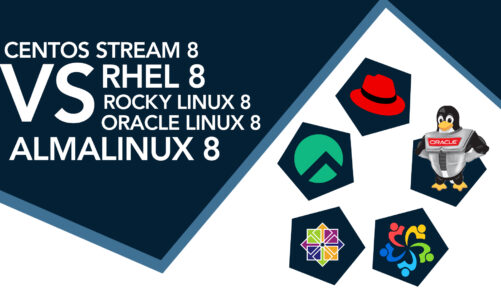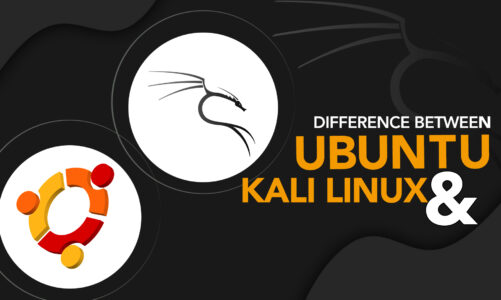Linux has been around for over 30 years and has come a long way in terms of user-friendliness and ease of use. Two of the most well-known distributions for beginners, however, are Ubuntu and Linux Mint.
While both are great choices, Linux Mint has a number of advantages that make it a better option for new Linux users. Discover why Linux Mint is the ideal choice for Linux beginners in this article. Find out what sets it apart from Ubuntu, and why it’s the more user-friendly and accessible option.
15 Reasons Why Linux Mint is better than Ubuntu for Linux Beginners
Linux is a widely utilized open-source operating system favored by tech enthusiasts. However, with the option of Ubuntu in mind, it’s confusing which one to go for. However, the following section will elaborate on how Linux mint is better than Ubuntu for Linux beginners.
1: User-friendly interface
The foremost advantage of Linux Mint is its user-friendly interface. The Cinnamon desktop environment, which is the default desktop environment for Linux Mint, is designed with ease of use in mind. It features a traditional desktop layout with a taskbar and start menu, making it similar to the familiar interface of Windows or MacOS.
Ubuntu, on the other hand, uses the Unity desktop environment, which takes some getting used to, especially for new users.
2: Community support
The Linux Mint community is among the largest and most active communities in the Linux world. They provide a wealth of forums, blogs, and documentation to assist new users in getting started with Linux Mint.
In contrast, Ubuntu’s community can sometimes be overwhelming and unhelpful to new users. The Linux Mint community is always willing to help new users and answer any questions they may have.
3: Software management
One of the most frustrating things for new Linux users is the process of installing and managing software. Linux Mint has a software manager that is easy to use and allows users to search for, install, and update software with just a few clicks.
Ubuntu, on the other hand, uses the Ubuntu Software Center, which can be confusing for new users and is not as user-friendly as the Linux Mint software manager.
4: Customization options
Linux Mint allows users to easily customize the look and feel of their desktop with the use of themes and icons. Ubuntu’s customization options are limited compared to Linux Mint and are not as easy to use.
5: Pre-installed software
Linux Mint comes with a variety of pre-installed software that is useful for everyday tasks such as browsing the web, listening to music, and watching videos.
Whereas Ubuntu does not come with as much pre-installed software and requires users to install additional software to perform these tasks.
6: Privacy concerns
Ubuntu has been criticized in the past for its privacy policies and for sending data back to Canonical, the company behind Ubuntu. Linux Mint, on the other hand, does not have any privacy concerns and does not collect any data from its users.
7: Stability and reliability
Stability and reliability are hallmarks of Linux Mint. It is based on the stable and well-tested codebase of Ubuntu but adds its own customizations and optimizations to make it more stable and reliable. Meanwhile, Ubuntu can sometimes be unstable and have issues with compatibility with certain hardware.
8: LTS releases
Linux Mint releases updated versions every six months, with each version receiving support for five years. Meanwhile, Ubuntu releases updated versions every six months but only provides support for the latest version for nine months. This means that users of Ubuntu will have to upgrade to the latest version more often, which can be time-consuming and frustrating.
9: Compatibility with proprietary software
Linux Mint has excellent compatibility with proprietary software such as Adobe Flash, Java, and Skype. Ubuntu has had issues with compatibility with proprietary software in the past.
10: No Unity interface
Ubuntu’s Unity interface can be confusing and difficult to use for new users. Linux Mint does not use the Unity interface and instead uses the Cinnamon desktop environment, which is more intuitive and easier to navigate.
11: Easy-to-use system updates
Updating the operating system can be a challenging task for new Linux users. Linux Mint makes this process easy with its update manager, which allows users to see what updates are available and install them with just a few clicks. Ubuntu’s update process can sometimes be confusing and requires more technical knowledge to complete.
12: Better resource management
Linux Mint is designed to be lightweight and uses fewer system resources compared to Ubuntu. The efficient performance makes it an excellent choice for older computers and users with limited hardware resources.
13: Multimedia support
Linux Mint has excellent support for multimedia formats, such as MP3 and DVDs, out of the box. Ubuntu requires the installation of additional software to play these types of media, which can be confusing and time-consuming for new users.
14: Variety of editions
Linux Mint offers a variety of editions to choose from, including a Main Edition, Cinnamon Edition, MATE Edition, Xfce Edition, and Debian Edition. This offer users with the flexibility to pick the edition that best meets their desires and preferences. In contrast, Ubuntu only offers a solitary edition.
15: Long-term support
Linux Mint releases Long-Term Support (LTS) versions every two years, with each version being supported for five years. Users can enjoy a secure and stable operating system for an extended period, thanks to Linux Mint’s reliability. Ubuntu releases LTS versions every two years, but each version is only supported for three years.
Conclusion
As we can see, there is a long list of ongoing benefits Linux Mint offers over Ubuntu, such as easy-to-understand UI, community support, privacy concerns and many other reasons as listed above. All these aspects give us the reasons why Linux Mint is better than Ubuntu for Linux beginners.



